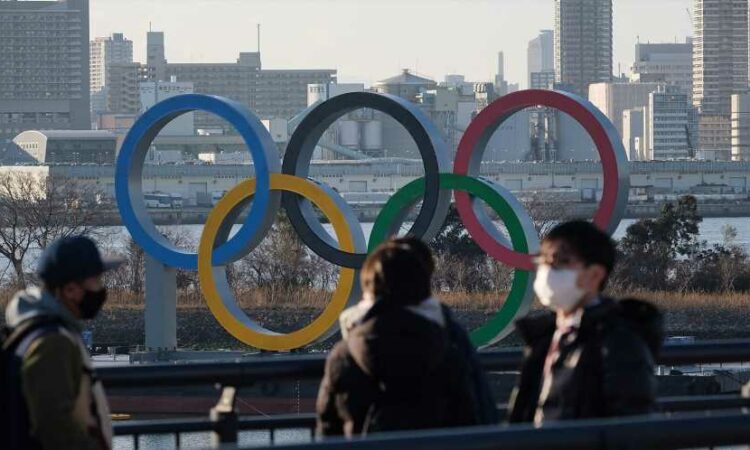Japan has extended its state of emergency until at least March 7 even as officials continue to plan for the rescheduled Olympic games only a few months away.
Under the state of emergency, which will be extended for 10 of the country's prefectures, including cities like Tokyo and Osaka, people are required to work from home when possible and restaurants must close by 8 p.m., The Associated Press reported this week.
Schools, gyms, and shops will remain open. Residents have also been asked to avoid crowds or eating in a large group.
The decision comes as Japan's Health Ministry reported 1,792 new COVID-19 cases, with about one-third of confirmed cases have been reported in the capital Tokyo.
While COVID-19 cases in the country have yet to subside, the Tokyo Olympic games are still on track to open July 23. They were initially delayed by one year due to the coronavirus pandemic.
On Wednesday, the International Olympic Committee released its first in a series of "Playbooks," detailing the steps athletes have to take before traveling to Tokyo and banning gestures like hugs, high-fives, and handshakes to reduce contact.
"We know these Olympic Games will be different in a number of ways," IOC Olympic Games Executive Director Christophe Dubi said in a statement. "By committing to following the Playbooks we will be stronger together. In return, the Olympic and Paralympic Games Tokyo 2020 will be remembered as a historic moment for humanity, the Olympic Movement and all those contributing to their success."
Anyone headed to Japan for the games will have to get tested within 72 hours of their departure and complete an "activity plan" for their first two weeks in the country, according to the IOC. Any spectators who are allowed to come will be asked to clap for athletes, rather than chant or sing.
Athletes will also be tested at least every four days, the IOC's operations director Pierre Ducrey told NBC News during a news conference. They will also be required to ask permission to use public transport.
The IOC will "encourage and assist" athletes and other support personnel to get vaccinated, but will not require vaccines to attend the games.
Alison Fox is a contributing writer for Travel Leisure. When she's not in New York City, she likes to spend her time at the beach or exploring new destinations and hopes to visit every country in the world. Follow her adventures on Instagram.
Source: Read Full Article

